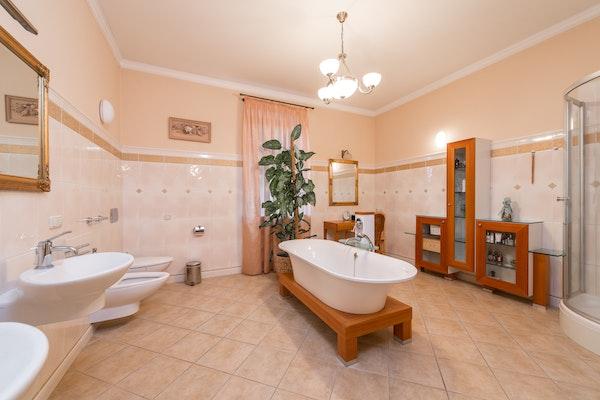Research shows that the average American household uses more than 400 toilet paper annually, which obviously leads to too much paper waste. Also, did you know that toilet paper requires a lot of water to be produced? It is because of these reasons the popularity of bidets has been steadily rising.
European bathrooms have been using them, and now they are becoming a staple in the United States. They offer a more sustainable and eco-friendly option than traditional toilet paper. This, in return, makes them very relevant in a world where there has been a growing movement towards keeping the planet greener. The reasons listed below show why a bidet is better for the planet.
Water Conservation
According to research, a bidet uses only an eighth of a gallon of water in each use. On the other hand, a single roll of toilet paper needs 37 gallons of water to be produced. It is, therefore, safe to say that one of the biggest reasons you should install a bidet in your bathroom is water efficiency. When you use a bidet, you conserve water, which, in return, helps with environmental conservation.
Reduced Carbon Emissions
After being produced, rolls of toilet paper need to be transported, which contributes to carbon emissions. These emissions tend to have a huge impact on the environment, not to mention contributing heavily to climate change. When you use a bidet, you help combat climate change and reduce our carbon footprint. In fact, some studies have suggested that bidet usage can reduce carbon emissions by up to 75%.
Reducing Deforestation
For toilet paper to be produced, trees have to be cut down, which leads to deforestation. Deforestation is hugely discouraged since it comes with several negative impacts that include:
- Loss of biodiversity,
- Soil erosion,
- Habitat destruction.
A bidet helps reduce the demand for toilet paper, which, in return, ensures fewer trees are cut, and the cutting of fewer trees preserves our forests in the long run. Moreover, there are a number of them made out of recycled materials to further conserve the environment.
Waste Reduction
The use of a bidet also contributes to waste reduction, thereby conserving the environment. Studies show that Americans alone use roughly 15 million trees worth of toilet paper annually; this makes toilet paper a key contributor to waste in landfills. Fortunately, you can reduce the amount of waste that ends up in landfills by using a bidet. The use of a bidet also reduces the strain on waste management systems.
Improving Personal Hygiene and Health
It is difficult to talk about the importance of using a bidet without mentioning the fact that it enhances personal hygiene. Compared to toilet paper, a bidet offers a more thorough cleanse, which makes it incredibly effective. The regular use of a bidet can help reduce the risk of urinary tract infections, anal fissures, and hemorrhoids, among others.
What’s more, a bidet can massively help anyone with mobility issues by providing an effortless way to maintain personal hygiene without relying on any assistance. Most of them have features such as adjustable water pressure and temperature that make them ideal for sensitive skin.
Economic Savings
The upfront cost of a bidet may seem high, but if you invest in one, you may save a lot in the long run. It turns out that when you reduce your toilet paper usage, you are not just conserving the environment; also, you are saving your wallet.
It is safe to say that a bidet is likely to pay for itself over time. Additionally, a bidet has numerous health benefits that may reduce medical expenses due to hygiene-related issues.
Bottom Line
A bidet has plenty of environmental benefits, which make it a better alternative to traditional toilet paper. It helps conserve water, reduce waste in landfills, minimize carbon emissions, and reduce deforestation. A bidet also has additional benefits, such as being cost-effective and enhancing personal hygiene and health.

